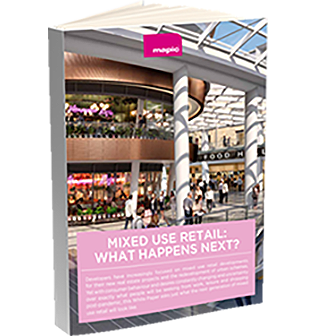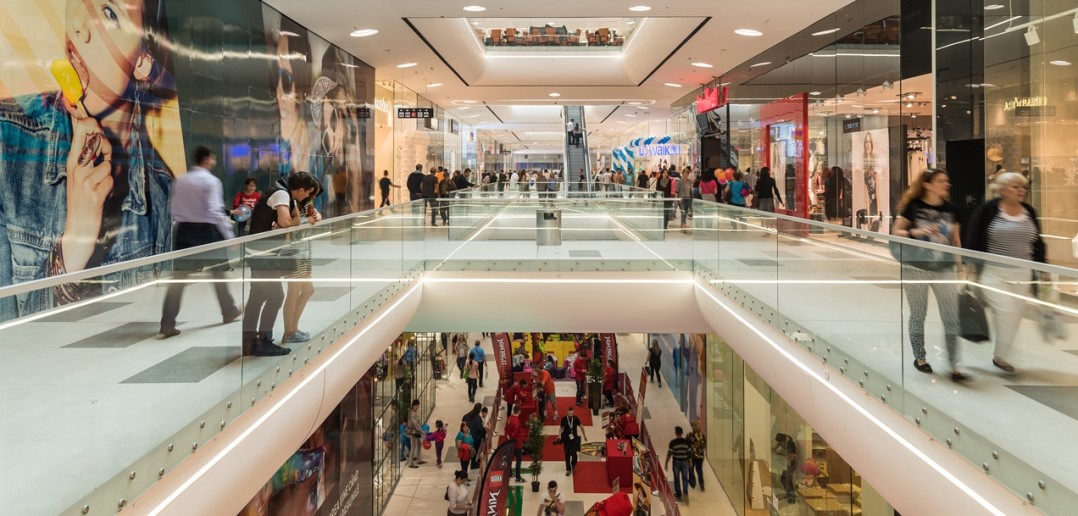In our expert blog spotlight, we have a piece written by Ryan Patel, Vice President of Global Business and Real Estate Development, of Pinkberry who has presented around the globe, from lectures to conferences, on how to build brands in new markets. We have asked him to briefly share some key fundamentals when expanding globally for retailers and food & beverage brands. Mr. Patel will be a speaker at the upcoming MAPIC event in Cannes, France on November 20th at USA Breakfast event.
7 fundamental steps for retailers going global
1. Ensure full commitment.
Everybody needs to be on board and buy-in to choosing to go global. Additionally, having a full commitment from staff on which country to enter first is vital in making the transition to the global market a smooth and successful experience. Every department will be tested at one point and executive staff must be ready to provide strong leadership to keep everyone rowing together and on the same boat. With everyone on the same page and fully committed to go global, your brand will be in a better position to achieve the goals.
2. Fully understanding the country-specific business model.
As many know, there are various models from corporate to Joint Ventures to franchising, etc. in which the brand will enter in a specific country and deciding on which to use is vital for expanding globally. This will help provide the guidance needed for the future infrastructure for both your internal and external teams. Be aware that it is not always true that the business model you use in your home country will work when you take to each new country.
3. Know your brand.
Understand the current strengths and weakness in not just in your home market but also what will be perceived in the upcoming global market. It is good barometer to understand what the current competition is doing in the global country – or if you are the first to market, what will the potential competitors come in and do. Brand position is critical and trying to figure that out prior to launching versus figuring it out while you open can be the determining factor in whether a retail or company will succeed or fail in global market.
4. Do your homework.
Learn and understand as much as possible the new country, from cultural beliefs to business practices. Every market is different and making sure everyone acknowledges and understands that is a critical step in going global. Get to know the locals, its culture and trends. What are their favorite foods, drinks, clothing, music , etc.?You never know until you become a local to understand how the consumer truly lives and spends. Compare and contrast other countries and styles where you and/or competitors have been successful and/or failed to see what lessons that can help your brand better adapt in a country.

Mixed use retail and leisure: What happens next? – White Paper
5. Create a development plan.
Building a thorough road map of how future growth would occur in the country will ensure your first store will not be your only and last store in the country. By finding out where your consumer lives and where do they go for fun, work, shop and travel can lead you to road in successfully identifying launching points for your brand. With this as well, it can be a starting point for cross functionally departments to work off when it comes to hiring, marketing, products, etc.
6. Build and implementing strong guardrails – brand protection.
Many companies need to be flexible when entering in new countries. It is important to clearly define both flexible and non-negotiable items and standards to ensure that the critically important issues to the brand are not compromised. By transparently addressing issues with brand protection will provide clarity to your entire team internally and externally so there will be no confusion for future builds – in addition to making future decisions easier for all.
7. Execute your strategy
Finally, once you have all that set with the teams and the strategy, it is time to execute it and provide the brands message, consistence service, core values and the products its consumer has come to love in your home country to the rest of the globe.
About the expert
 Ryan Patel serves as the Vice President of Global Business & Real Estate Development for Pinkberry, one of the fastest growing retail brands globally. Since commencing at Pinkberry in 2011, the company has gone from less than 95 locations to over 260 stores across 21 countries and continuing to expand. An expert in growing brands, he has worked for publicly traded to private companies, and has helped build corporate to franchise stores throughout the retail to food segments, both domestically and internationally. Prior to joining Pinkberry, he has worked for Wet Seal Retail, Inc, Jamba Juice, BJ’s Restaurants, Inc and Panda Express. He received his Bachelors from University of California, Berkeley and received his MBA from the Paul Merage School of Business at University of California, Irvine.
Ryan Patel serves as the Vice President of Global Business & Real Estate Development for Pinkberry, one of the fastest growing retail brands globally. Since commencing at Pinkberry in 2011, the company has gone from less than 95 locations to over 260 stores across 21 countries and continuing to expand. An expert in growing brands, he has worked for publicly traded to private companies, and has helped build corporate to franchise stores throughout the retail to food segments, both domestically and internationally. Prior to joining Pinkberry, he has worked for Wet Seal Retail, Inc, Jamba Juice, BJ’s Restaurants, Inc and Panda Express. He received his Bachelors from University of California, Berkeley and received his MBA from the Paul Merage School of Business at University of California, Irvine.
About Pinkberry Company
Pinkberry is an innovative yogurt retailer that launched in West Hollywood, CA, in 2005. Today, with more than 260 stores worldwide, Pinkberry is one of the world’s fastest growing global retail brands and continues to lead the category. Pinkberry offers consumers a one of a kind experience comprised of distinct product, outstanding service and inspirational design.
Pinkberry’s flavors and fresh-cut-daily fruit and premium toppings offer an irresistible light and refreshing taste. From store design to exceptional customer service to irresistible yogurt flavors and toppings Pinkberry delivers an experience that delights and refreshes consumers. Pinkberry is certified by the National Yogurt Association and carries the Live & Active Cultures Seal.
Visit the company on Facebook (www.facebook.com/pinkberry) and Twitter (@pinkberry).
Top photo credit: Radu Bercan



